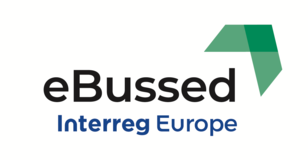In Hungary, the South Transdanubian Regional Innovation Agency (STRIA) is monitoring the action plan consisting of 2 actions of which the implementation started on 1 August 2022.
Digitalization and testing solution
Action 1 targets reducing the impact of urban and suburban bus transport by preparing for digitalization and testing solution. STRIA teamed up with the state-owned Central Danube Development Agency (CDDA) and defined the pilot area for the action. It is a 99 settlements intervention area that is identical with the so-called Central Danube Priority Area as designated by the state.
Within the project operating area, there are several good practices that are utilized in South Transdanubia. The Dutch company Qbuzz, based on their experiences, optimizes the e-bus drivers’ skills and the Finnish e-bus company trains the whole staff and includes eco-driving for e-bus drivers have been utilized. Also, the good practices from Hamburg, including change management and information strategy for bus drivers and technicians, were observed and tailored to the Hungarian needs and circumstances. The findings of this work were presented to majors and urban development and transport experts of the 99 settlements eBussed pilot area by in an online event organized by CDDA and STRIA in December 2022.
In mid-January, a subcontractor was chosen in a public procurement to elaborate the digital solutions that support the optimal user experience using online testing and questionnaires to individuals and groups. This work targets bus drivers, staff of public transport organizations and colleagues of the concerned municipalities.
Upscaling of the electric charging network efficiency
The action 2 addresses the upscaling of the electric charging network efficiency. The work started with a detailed analysis of the identified good practices: Dordrecht, peak charging, intelligent charging and V2G charging in the Netherlands, on duty service for solving the e-bus charging problems in Turku, and the pre-conditioning of e-buses in Hamburg.
Given that all consecutive activities, i.e. setting up of the expert group for analyzing existing solutions and preparing an assessment and developing model solutions, were a subject of the public procurement that closed in mid of January, the vast majority of the work is still ahead here.











